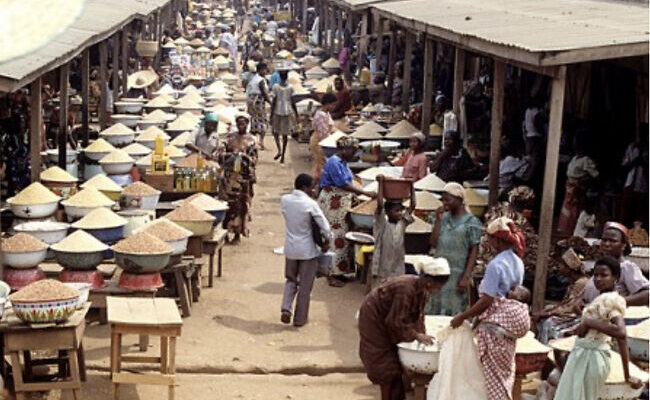
As Nigerians prepare for the Christmas and New Year celebrations, prices of essential commodities have increased drastically in the past few weeks. Clothing items are not exempted from the price. Many Nigerians have cut back on food and clothing spending while traders lament low sales. Sadly, the current cash withdrawal limits are causing a strain on many Nigerians’ to access money via banks and ATMs.
Tribune Online visited Ogunpa Market on Friday to get the reactions of sellers and buyers who lamented the economic situation as they experienced inflation in the prices of goods.
One of the traders, Udoku Paul, lamented that the inflation has resulted in low patronage from their customers because the prices of commodities have more than doubled last year’s.

“Last year was better than this year because the prices of goods/services doubled that of last year. Sudoku explained that a cloth that sold for N1800 last year is now #3600 this year,” Paul explains.
Kolapo, who was at the market to shop for himself, also revealed that the inflation in the prices of commodities is forcing low-income people to cut back on feeding. “Poor people are becoming poorer amid the increasing cost of living, not to talk of buying clothes for their children during this period,” Kolapo complained.
Also, at Oja-Oba Market (Ibadan) on Friday, poultry product sellers are not exempted from the effect of inflation. The cost of a living chicken has increased from N7000 to N12000, while frozen chicken has increased from N1800 to N2300 per kilogram.
Mrs Basit, a poultry product trader, said turkeys sold for N15000 are now N30000 or N40000, depending on the size. As a result, customers prefer to buy frozen ones instead of livestock.
Pepper sellers also complained of a drastic hike in the price of tomatoes, ‘rodo’, and ‘Bawa’, saying a basket of tomatoes sold for N7000 last year is now N15000.
One of the traders we spoke with explained that the reason for the inflation in the price of these vegetable products is insecurity, which has prevented farmers from cultivating their farmlands.
According to James, the rice seller, the Price of a bag of rice is now N34000, as last year’s price was N26000. He also complained that the cash withdrawal policy is affecting his business because accessing cash is becoming more difficult. There are more queues inside the banks and on the Automated Teller Machine (ATM) stands.
Generally, prices of essential commodities during this period have risen, to mention a few;
A keg of vegetable oil has risen from# 27500 to #33000
Bag of salt(by40) has increased from# 3500 to #4200
Semo(5kg) has risen from# 2700 to #3350
Spaghetti from #6300 to #8600
Noodles from #3100 to #3850
General review shows that the high price of essential commodities is caused by the high price of oil and gas products (fuel, gas, diesel, kerosene); also, insecurity in Nigeria discourages farmers from farming, thereby leading to the high price of farm produce.








